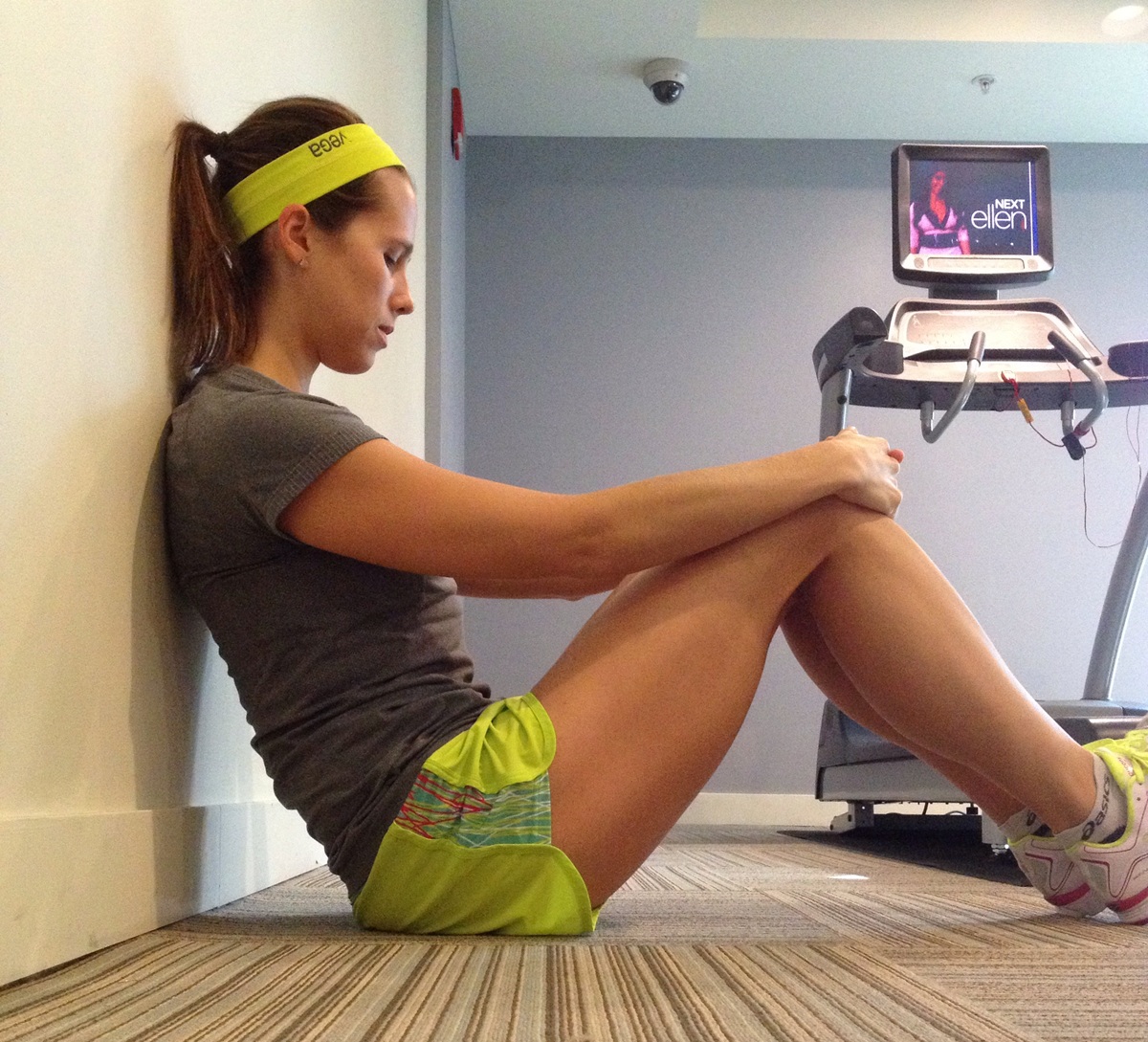You’re putting in the work, logging the miles, and lifting weights in the gym. But if it feels like your muscles aren’t actually getting stronger, you might be missing some signs you’re burning muscles instead of building them. The truth is, sometimes the way you’re training (or fueling) can unintentionally work against you rather than help you get closer to your goals.
The truth is, sometimes the way you’re training (or fueling) can unintentionally work against you rather than help you get closer to your goals.
We’ve already talked about how you can absolutely be a runner and still build and maintain muscle.
But if your goal is to get stronger and instead you’re noticing muscles fading or feeling weaker, the issue might not be the miles themselves; it could be the red flags you’re not paying attention to.
So let’s break down some of the most common signs you’re burning muscle while running.
How to Run Without Losing Muscle
Yes, running can burn muscle, but it shouldn’t.
The signs below aren’t just a part of training; they’re things every runner should pay attention to. Catching them early gives you the chance to make small adjustments before they grow into bigger problems that could sideline your training.
Each of these are signs you’re burning muscle while running and therefore need to make a change.
1. You’re gaining body fat while losing weight.
Your weight isn’t just fat; it’s also made up of muscle, water, and even your bones. So if you start losing muscle, your body fat % can actually creep up, even if the scale goes down.
When you’re under-fueling or doing lots of cardio without any strength training to balance it out, this is a common result. Without fuel coming in your body will need to create energy and it can start pulling that fuel from your muscles. Research shows that when this happens, metabolism slows and strength drops.
Solution: Stop the large calorie restrictions while doing distance running and strength training. Building muscle requires a calorie surplus. Start paying attention to your total intake and especially your protein intake.
Stop fasted training. Too much data showing it does not help you lose weight, but does hinder progress.
2. You feel exhausted after every workout.
If every long run feels like you’re hitting a wall, or you need days to recover from something that used to feel easy, that’s a red flag.
That kind of lingering exhaustion often means your body is breaking down muscle for fuel because you’re not getting enough carbs and protein.
Sure, it’s normal to want to rot on the couch and binge Netflix after your long run, but it shouldn’t be that way after every single run or workout.
Solution: During runs over 90 minutes, ensure you are starting to take in 60 grams of carbs per hour. This is going to ensure your body has the fuel it needs onboard and does not turn to your muscles for fuel. It also means you’ll have better energy the rest of the day which means more fun, more movement, more calories burned.
3. You feel weaker.
You might notice it’s harder to pick up the pace at the end of a run, the hills you love feel tougher than usual, or the dumbbells at the gym suddenly feel heavier.
If you’re training regularly but are starting to feel like you’re going back to how things were during those first few weeks of training, it may be a sign that you’re losing and not maintaining your muscle.
Solution: Keep track of your weights and keep rating each workout. There will always been ups and downs with energy, but if you’re noticing week after week that things feel harder it’s time to take a cutback week or rest days.
This will give your muscles a chance to repair and build back stronger. If they are only breaking down, you can’t make progress.
4. You’ve hit a plateau in training.
Instead of getting faster or feeling stronger, you feel stuck, or like you’re going backwards.
Runs that used to feel easy start to feel tough, and long runs drag on no matter what tricks you try, whether it’s running to the next tree or blasting your favorite song on repeat.
Without enough muscle to support you, your body can’t keep up or make the progress you’re working so hard for.
Solution: Evaluate your hydration, fueling and sleep. Are you giving your body enough recovery for the work load.
Checkout some of the best carbs for runners.
5. You feel sluggish and less motivated.
If every run feels like a slog or you start dreading your workouts because you don’t have the energy, your body is likely burning muscle for fuel.
When that happens, it doesn’t just affect your running; it can spill into everyday life, too. Leaving you more tired, less motivated, and maybe even a little cranky.
Most of the time, this comes back to not eating enough or missing out on protein, which is what your muscles need to stay strong.
Solution: A minimum of 100grams of protein is recommended for runners. We need enough protein to help our muscles recover from the workouts. And likely you will need more than that based on body size.
6. You aren’t sleeping well.
Your muscles do most of their repair work while you’re snoozing. That’s when your body actually rebuilds the tiny tears from training so that you can show up to your next workout feeling strong.
If you’re waking up a lot, tossing and turning, or never feeling totally rested, your body isn’t getting the recovery time it needs.
Over time, poor sleep can slow down recovery and leave you feeling even more run-down. This is often why running starts to feel harder.
Solution: Reconsider your relationship with rest and sleep. Are you prioritizing it? Would you be better served to drop a day of training to get in more sleep…well yes if you’re losing muscle.
It doesn’t matter what distance you’re training for; if you’re working out, you need to get enough sleep. Here are a few key tips to improve sleep quality.
7. You’re cold all the time.
We say this over and over again because it’s important. Your body needs carbs (glycogen) to get through hard workouts.
When your glycogen stores run low, your body will start breaking down muscle for energy, and one of those side effects is often feeling cold.
Not eating enough can make things worse by throwing off the system that helps regulate your body temperature.
So if you’re always cold after long runs or find yourself piling on extra layers, it’s your body’s way of shifting into energy-saving mode.
Solution: This isn’t just about eating pre-workout, it’s about taking in enough all day long. This is a hard shift for many who may have started running for weight loss. However, if you’re losing muscle because of that restriction then you’re making weight loss harder and probably causing you to move less the rest of the day.
Getting in protein post-workout not only speeds up recovery but also supports muscle building.
8. You constantly feel sore.
Soreness, especially if it never fully goes away, is NOT a sign of a good workout.
It’s normal to feel a little sore after a tough run, but if you’re sore after every run or that soreness lasts for a few days, that’s a red flag that your body isn’t getting the chance to repair itself.
Without enough protein, fuel, and recovery, your muscles start to break down instead of repairing to come back stronger for the next workout.
That all the time soreness might show up as heavy legs, constantly feeling achy, or just never quite feeling fresh when you head out for a workout.
Solution: Stop ignoring the signals your body is providing. Just pushing through may sound impressive, but it’s a long term losing scenario.
9. Losing weight too quickly.
Seeing that number on the scale go down can feel like a big win, but if it’s happening too quickly, it’s not always a good thing.
Fast weight loss, especially as a runner, means that you’re losing muscle along with fat. And though there is often a fixation on the scale, very few of you want weight loss, you want fat loss. And 1lb of muscle weighs the same as 1lb of fat, but they take up a very different amount of space.
Instead of getting leaner and stronger, you’re actually losing the very muscle that gives you power and strength to chase after those PRs.
Starting to notice the theme here? When your body begins burning through muscle, it almost always comes back to one thing: not fueling enough.
So the next time these signs of burning muscle show up, remember they’re not just a normal part of training. They’re your body’s way of sending up a red flag that something needs to change.
What to read next?
- Decoding Your Running Gel: What Those Labels Really Mean
- Does Muscle Weigh More Than Fat? Here’s the Real Answer
- 27 Running Fuel Alternatives to Gels (Sensitive Stomach Ideas)



 Mizuno Wave Rebellion Flash 3 Review | Only For Fast Midfoot Strikers
Mizuno Wave Rebellion Flash 3 Review | Only For Fast Midfoot Strikers